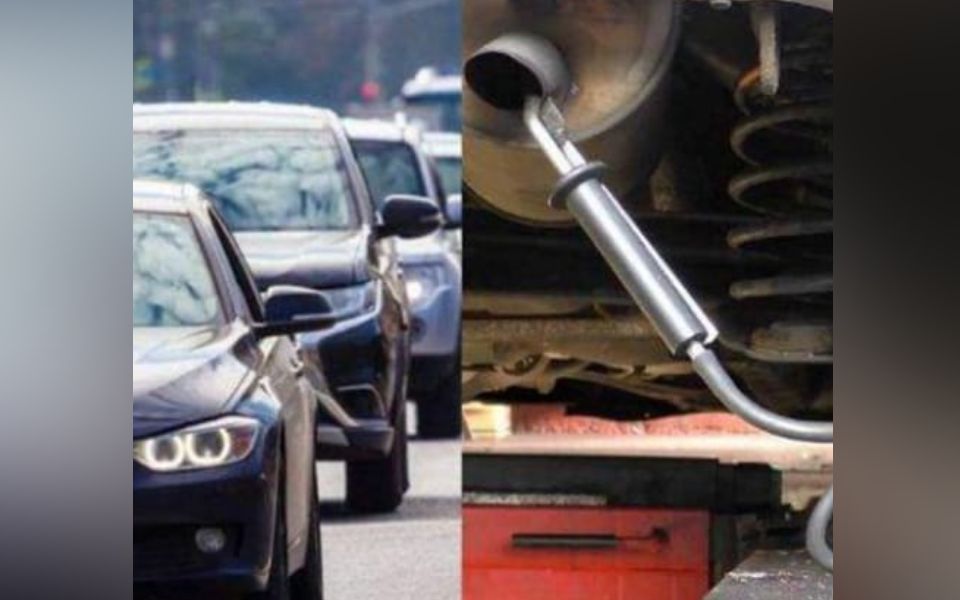New Delhi, Jul 14: Petrol pump owners said PUC centres will be shut from Monday onwards, expressing their dissatisfaction over the recent proposed hike in rates of pollution certificates by the city government.
The operation of the pollution under control (PUC) centres is unviable, they said in a statement issued on Sunday.
Delhi government on Thursday increased the PUC certificate charges for petrol, CNG and diesel vehicles after a gap of about 13 years. The hike ranges between Rs 20 and Rs 40.
The new rates will be effective as soon as it is notified by the Delhi government, Transport Minister Kailash Gahlot had said.
In a statement issued, the Delhi Petrol Dealers' Association (DPDA) said, "Since the operation of PUC centres is unviable, many PUC centres have surrendered their licenses in the last few months. The managing committee of the Delhi Petrol Dealers Association has thus resolved to close PUC centres at their retail outlets across Delhi from July 15 in light of arbitrary and grossly insufficient hike in PUC certification rates, which will not in any way mitigate the losses of the dealers in operating the PUC centres," the statement said.
The Delhi Petrol Dealers' Association, after eight years of writing letters to the transport department and the transport minister had earlier called for a closure of the PUC centres from July 1 due to its unviability, it said.
The association said PUC rates were last revised in 2011 after a gap of six years and the percentage increase then was more than 70 per cent.
"The rate hike announced by the Delhi government now after 13 years is merely 35 per cent whereas all our expenses in the operation of a PUC centre have increased multiple times with just the wages having increased three times from 2011 to 2024," the statement said.
Oil marketing companies have also been charging heavy rents from the PUC centres -- 10-15 per cent of the total revenue -- which was not the case earlier, the statement said.
"Various other operational costs of the PUC centre have drastically increased over the last 13 years. The expense to the customer earlier was four times the current cost as the frequency of PUC certification was once a quarter, which has now come down to once a year due to changes in certification norms for BS-IV and above vehicles. This also has led to a reduction of revenue by 75 per cent," it said.
"The Hon'ble Minister of Transport, Govt. of NCT of Delhi in a meeting with Delhi Petrol Dealers Association had called our demands legitimate. The Delhi govt proposed a 75 per cent hike based on the inflation index with simple interest calculation, after which we deferred our strike on June 30.
"While we were trying to convince our dealers to agree on the 75 per cent hike in pollution checking rates, we were informed by the press of a hike of Rs. 20, Rs. 30 and Rs. 40 in the above mentioned segments, which is merely a 35 per cent average hike. We have also come to know that there is no basis or justification for the calculation, and the figure is arrived at arbitrarily," the statement said.
Let the Truth be known. If you read VB and like VB, please be a VB Supporter and Help us deliver the Truth to one and all.
Dubai: Smoke was seen rising from an area near the United States Consulate in Dubai, according to witness accounts cited by Reuters.
There was no immediate official confirmation on the extent of damage or whether there were any casualties in the incident.
Earlier, the US embassy in Riyadh, Saudi Arabia’s capital, was also attacked. Authorities reported damage to the premises, but no casualties were recorded.
The developments come amid heightened tensions in the region, with Iran continuing to target US interests in the Middle East following deadly attacks launched on Saturday by Israel and the United States.
Near US embassy in Dubai pic.twitter.com/z5VTZNVxNO
— Sahil Shah (@thesahilsshah) March 3, 2026





